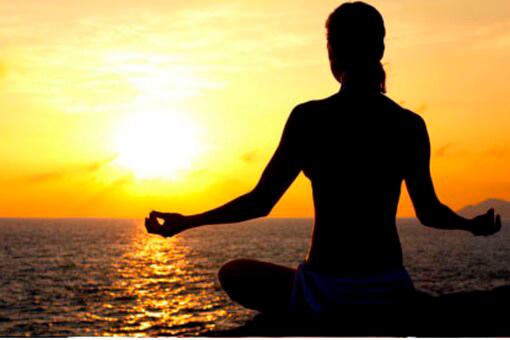IN a fast-paced world where our thoughts are constantly racing, a seemingly simple concept has emerged as a focal point in our collective consciousness: mindfulness.
This term has been tossed around in recent years, often accompanied by hype. But what exactly is mindfulness and why does it hold our attention, appearing to be accessible and yet strangely elusive?
Let us explore the essence of mindfulness, its connection to the present moment and reasons its practice can be effortless and challenging.
Mindfulness is a state of complete presence and involvement in the current moment, free from judgement or distraction. It is about directing your attention on the present, appreciating the beauty and intricacies of each unfolding moment.
In our hyperconnected world, where smartphones and constant notifications demand our attention, mindfulness provides a sanctuary of clarity and calm.
At first glance, this description may seem deceptively straightforward. After all, it is not just about being aware of our surroundings. There is more than meets the eye.
Mindfulness delves into the depths of our consciousness, beckoning us to explore not only the external world but also our internal realm.
Mindfulness is not limited to the present moment, although it starts with the present moment. It is a gateway to a broader understanding of ourselves and our place in the universe.
By training our minds to stay in the present, we gain insight into our thought patterns, emotions and reactions. We start to notice the subtle fluctuations of our inner world, which can be as chaotic as the external world.
In essence, mindfulness transcends the present moment. It is a vehicle for self-discovery and self-mastery. When we practise mindfulness, we become observers of our thoughts, emotions and sensations.
We learn to accept them without judgement, allowing them to flow through us like passing clouds. This does not mean suppressing or denying our feelings, it means acknowledging them and choosing how to respond consciously.
If mindfulness offers such profound benefits, why is it often perceived as easy and difficult to attain? The answer lies in the paradox of simplicity and complexity inherent in mindfulness.
On the surface, mindfulness may seem easy. After all, how hard can it be to focus on the present moment? However, as anyone who has engaged in mindfulness meditation will attest, it does not take long before the mind begins to wander.
Our thoughts will drift to the past or the future, distractions start creeping in and the present moment slips away like sand through our fingers. This is where the challenge lies: the mind’s innate tendency to meander and the incessant chatter of thoughts.
Our brains are wired to constantly analyse, plan and reflect. Quieting this mental turbulence is no small feat. Like taming a wild horse, it takes time, patience and practice.
In a world that frequently glorifies multitasking and constant stimulation, the act of sitting still and doing nothing can feel counterintuitive. It is this paradox that makes mindfulness difficult to achieve.
It is easy in theory but challenging in practice because it requires us to break free from the relentless pace of modern life, slow down and focus our attention inwards.
However, the rewards of mindfulness are worth the effort. As we become more skilled at mindfulness, we can experience greater clarity, emotional resilience and a profound sense of inner peace.
It is a journey that can take us beyond the present moment, leading to a deeper understanding of ourselves and our connection to the world around us.
In conclusion, mindfulness is not just a passing trend or a buzzword. It is a transformative practice that can bring balance and serenity to our lives.
While it may seem simple, it carries the paradoxical challenge of taming the wandering mind. But with dedication and practice, mindfulness can guide us on a journey that goes beyond the present moment, helping us discover the profound depths of our inner world and the beauty of the world outside.
In a world filled with noise and distraction, let us embrace the mindful revolution and discover the profound richness of the here and now.
The writer is a Certified Mental Health and Awareness practitioner specialising in Narcissistic Abuse Recovery. Comments: letters@thesundaily.com









